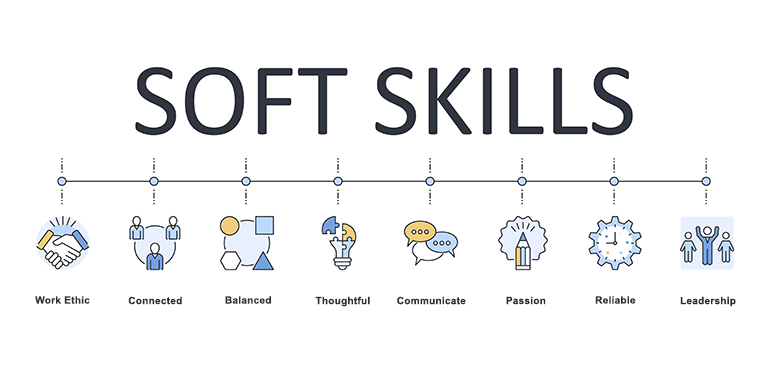Soft skills make for more valuable board directors

Regardless of industry or sector, successful board directors are united by some common soft skills or personal qualities that enable them to be better and more valuable independent board directors. As an aspiring or existing independent director seeking a board appointment, recognizing and working to develop some of these attributes can only work in your favor.
Previously I discussed what skills are needed to be a board director. Today I want to address the skills that will make you are better, more valuable independent director – soft skills. Successful independent directors are rarely the boardroom’s most intelligent or qualified people. Of course, knowledge and experience are required to perform and contribute to a board, but there are several soft skills that drive value and effectiveness. Being able to articulate your proficiency in any of these skills will make you a more appealing candidate to new boards.
What are soft skills?
Hard skills are easy to quantify – they are the technical knowledge you learn in the classroom or on the job, and you prove them through certifications, degrees or other qualifications. Whilst soft skills are more subjective and general in characteristics. They are relevant to one’s personality traits but can also be refined through life and professional experiences.
Most of the soft skills that make for more valuable independent board directors are associated with a person’s emotional intelligence. Emotional intelligence is the ability to recognize your emotions, understand what they’re telling you, and realize how your emotions affect people around you. It also involves your perception of others: understanding how they feel, allows you to manage relationships more effectively. People with high emotional intelligence are usually successful in most things they do.
What soft skills make for more valuable independent board directors?
From my experience working with and on boards, several soft skills stand out as traits that make people better and more valuable board directors and more sought after by board chairs and recruiters looking to recruit new board directors.
These soft skills are:
- Self-motivation
- Self-regulation
- Adaptability
- Empathy
- Communication
Self-motivation
Self-motivation can be considered as one’s personal drive to improve, succeed, commit to goals, show initiative, readiness to act on opportunities and be resilient. Independent board directors are not miro managed; they are overseen by essential only the board chair. The responsibility to get stuff done falls on the individual board director. They must be motivated, reliable and ready to step in when needed. Valuable board directors will read every page of every report, constantly engage and network, delve deep and spend time researching.
Self-motivated board directors are usually also resilient and optimistic, which allows them to keep going during uncertainty and setbacks, plus encourage others to do the same. Some of these traits are ingrained, but with the right mindset and experiences can be acquired and nurtured.
Self-regulation
Boards need leaders who remain calm even when stressed, not showing visible emotion. They must be able to think clearly under pressure to make good rational decisions. They also need to be able to recognize their personal emotions and opinions and separate them from the decision-making process.
Board directors who self-regulate will not allow their emotions to affect their professional behavior. They are unlikely to say or do anything that will bring the board or the organization into disrepute. They maintain integrity and principles with a strong moral compass.
Adaptability
A modern board director must be adaptable and not set in their ways. Change is difficult and stressful for most of us, particularly the older we get. It is essential that board directors are not only able to manage their personal adaptability but be supportive of change and change management within the organizations they represent.
Empathy
Practising empathy at board level can be critical in improving communication, strengthening key relationships and making better decisions for all stakeholders. Empathy is the ability to observe and reflect on the experience, perspectives and feelings of others. Empathy builds greater collaboration and improves productivity within a board team, particularly in challenging times.
Communication
Board directors must be able to communicate with empathy and authenticity whilst being transparent and truthful. However, to be an effective director, they should also be able to communicate with other board members and individuals within the organization to enable them to influence or be heard without being dictatorial.
The art of communication at board level is tricky, to say the least. The board’s effectiveness and the organisation’s success hinge on good communication. The communication skill required comes from a combination of real-life and professional experiences, good listening skills, and knowing when to contribute and when to hold back. Stong communicators can articulate complex ideas clearly, and courteously transfer knowledge congenially. They also know when small politics may count for more than grandstanding. Good board directors know what to say and how to say it, regardless of the situation.
In addition, boards seek independent board directors who are well-connected and/or able to reach out to make valuable connections. Specialized communication skills are key to establishing and maintaining these high-level relationships.
What does that mean for you?
Boards want independent directors that perform and add value to their boards. Chairs recognize where soft skills sit in this equation for their board and their organization. So should you. Soft skills can set you apart during the highly competitive board appointment process. You must recognize and incorporate your soft skills into your brand and board profile. Include them in your Board CV and Board Cover letters, particularly when addressing selection criteria.
Often gaining a board appointment is more about fit and passion than governance skills and board experience. If you lack governance skills and board experience, leverage any or all of the soft skills above to articulate your value as a board director. Successful independent directors have worked this out and know what makes them more appointable than their competitors.
None of the soft skills I mention above is unique. Many of us already have them, but we fail to acknowledge their value at board level. Many of these skills can be refined over time via professional experience and a commitment to continual learning and development (both professional and personal).
If you are struggling with setting yourself apart from the competition during that board appointment process, let us do it for you. Included in our Board Appointment PLUS membership is our Unlimted Application Review service.
Related Articles
What are the skills needed to be a board director?
About the Author
David Schwarz is CEO & Founder of Board Appointments. He has over a decade of experience in putting people on boards as an international headhunter and recruiter. He has interviewed hundreds of directors and placed hundreds into some of the most significant public, private and NFP director roles in the world.







Responses